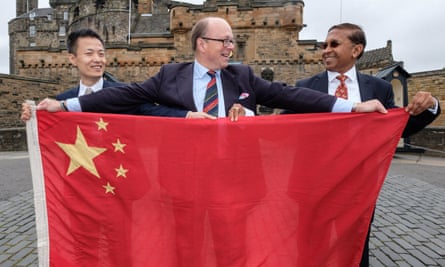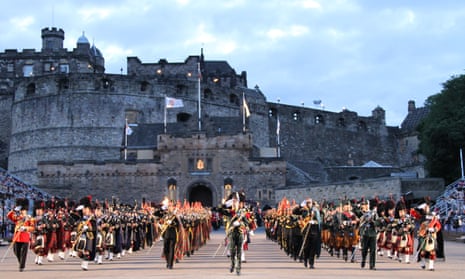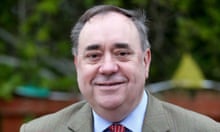The organisers of one of the biggest draws at the Edinburgh festival, the military tattoo, are hoping to expand worldwide, eventually holding the event across Asia, the Middle East and North and South America.
Although the tattoo, which opens on 4 August, is indelibly identified with Scotland’s capital, from the lone piper on Edinburgh Castle’s ramparts to the massed pipe bands on the esplanade below, the organisers of the spectacular show are confident there is an appetite to host it abroad too.
Negotiations are under way with the Chinese government and promoters to hold the tattoo in China in 2020. A team from the tattoo is heading for China in the autumn to firm up plans to stage it in three cities; Beijing, Shanghai and possibly Guangzhou. It would be a co-production with the Chinese government and Chinese promoters.
The tattoo, which began in 1950 and is a charity, has become a showcase for British forces and their counterparts from around the world and been a sellout for the last two decades, attracting audiences of about 220,000 at the event and 100 million on television.
In an interview with the Guardian at the tattoo headquarters in Edinburgh, Brig David Allfrey, who has been in charge of the tattoo since 2011, said: “I’d love to do North America. I’d love to do India. I’d love to go to places like Brazil that are important to the UK. South America is so rich.
“We have such an interesting heritage and pedigree in that part of the world. Almost all the South American countries have been touched by Scots – by miners and engineers from our islands.”

Allfrey, a former commander of the Royal Scots Dragoon Guards, said: “I’d love to go to Russia with this. But, of course, that is a sort of cheeky proposition at the moment. But why should we not be doing that? Shouldn’t we be having a North Korean act here? Would that not be exciting?”
The tattoo was held in Australia and New Zealand last year, but plans to take it to Jordan and the Gulf states – Oman, Kuwait, the United Arab Emirates and Qatar – next year were abandoned in January.
One of the reasons for the cancellation may have been complicated negotiations with the Treasury, who, against a backdrop of austerity, might have been unwilling to underwrite such a project or commit to any long-term planning.
The cost of staging the tattoo in Edinburgh is just below £9m and is heavily dependent on hundreds of personnel provided by the Ministry of Defence, who make up a large part of the 1,200 to 1,400 members of the forces involved. The value of the contribution of UK personnel is estimated at about £2.5m, and the Treasury looks afresh at that figure each year.
The MoD, in spite of cuts that have seen reductions in the size of the army, the number of planes available to the Royal Air Force, and the size of the surface fleet, regard the £2.5m as money well spent.
A MoD spokesperson said: “The Royal Edinburgh military tattoo is an important and historic event, watched by a TV audience of over 100 million and providing a unique opportunity for the public in Scotland and visitors to engage with the armed forces.
“In recognition of the benefit to defence, the MoD does not seek to recover all of the salary costs of those personnel involved in the tattoo. All extra costs relating to the provision of military personnel are paid by Royal Edinburgh Military Tattoo Ltd.”
Allfrey argues there is value to the UK from the tattoo not just as a showcase for the military, but in terms of tourism, trade and investment, and soft diplomacy.
“I hesitate to call it soft power, because soft power has connotations for people, but it is unquestionably influential at a very, very gentle level,” he said.
Asked if the China event will definitely go ahead given the failure of the proposed trip to the Gulf states, Allfrey said he would not regard anything as definite until he stepped off the plane in China in 2020. However, he added that the discussions, which began more than five years ago, were well under way with the ministry of culture in Beijing and the promoters, the China Arts and Entertainment Group, and the city authorities.
He is hoping that the Chinese team that organised the spectacular opening ceremony of the 2008 Beijing Olympics will be involved. In a sign of their intent, the tattoo organisers have also struck a deal with WeChat Pay, a Chinese online payment system.
The tattoo, as a charity, has contributed an estimated £10 million to service charities and to the arts.







